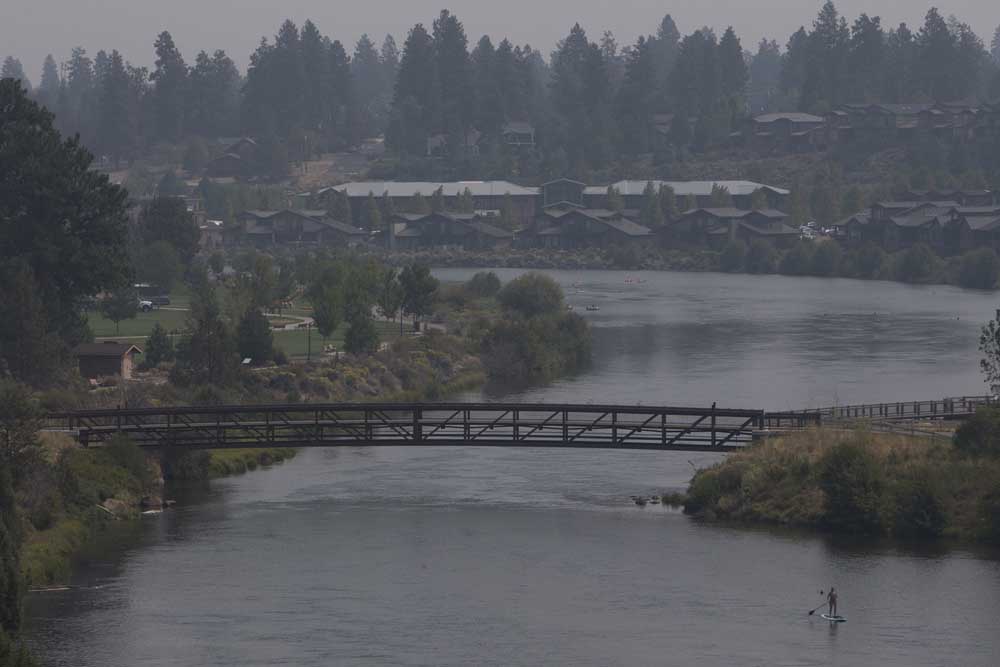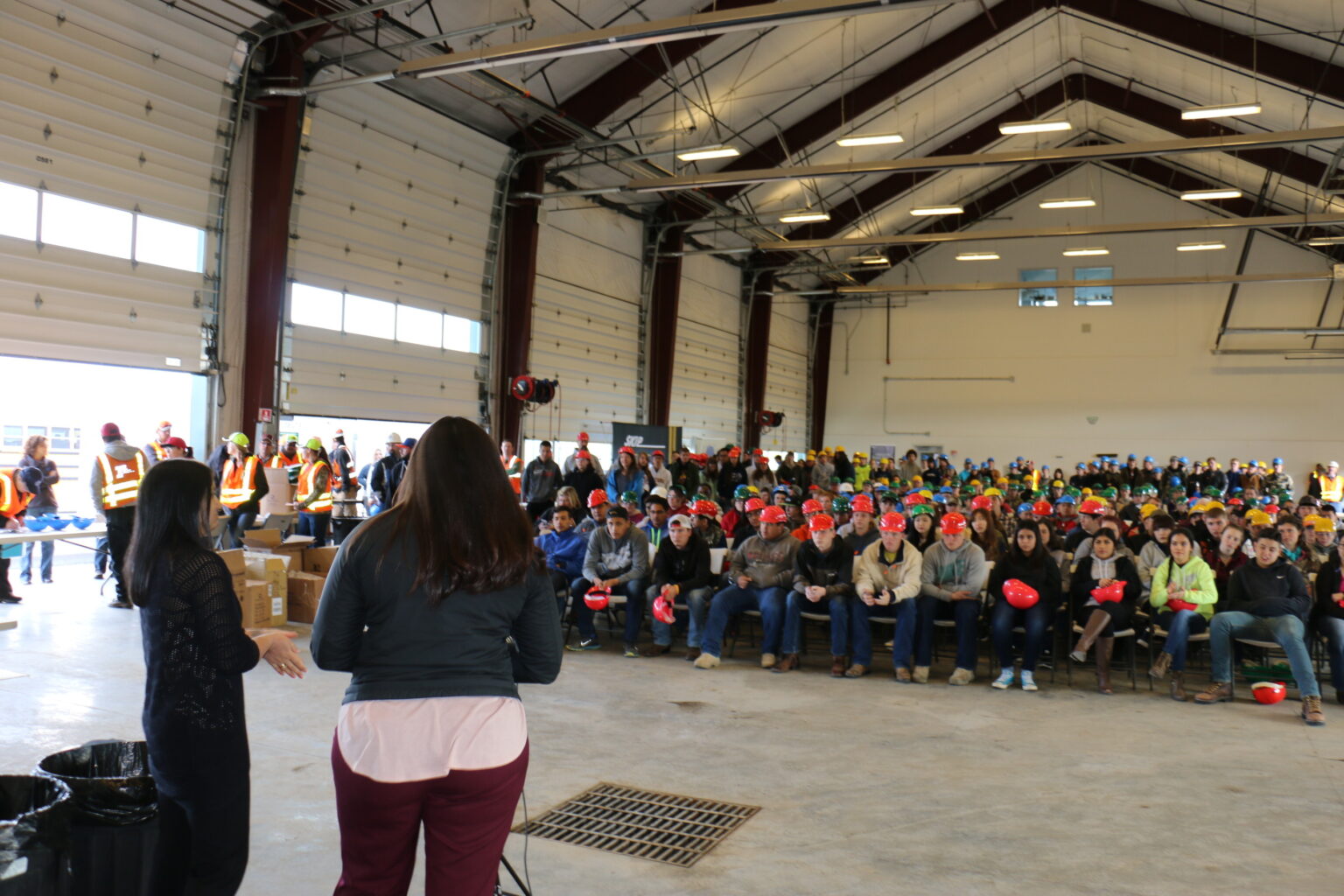Smoke affects busy summer travel season in Central Oregon
Published 8:30 am Friday, November 22, 2024

- In an area usually filled with water enthusiasts, a lone standup paddle boarder makes their way up the Deschutes River, as smoky skies fill the air, near Farewell Bend Park in Bend in August 2018.
The smoke from forest fires in the region negatively affected lodging occupancy and the city of Bend’s collection of hotel taxes in July and August, according to data provided by Visit Bend, the marketing arm for the visitor industry in Bend.
Room tax collections were down 6.5% in July and August in Bend due to the smoky conditions from fires in the region, which also drove down demand and affected the nightly room rate, said Nate Wyeth, Visit Bend senior vice president.
Region-wide, the visitor numbers were flat during the summer months, compared to the previous summer, said Scott Larson, Visit Central Oregon CEO. It could be a smoke issue or an affordability concern, Larson said.
“This may vary in certain pockets of the region as the level of smoke also varies by day and by region, but as a whole, we show that visitation was roughly flat compared to 2023,” Larson said.
The decline in room tax revenue spills over to government spending when it collects less tax from visitors, said Jeff Knapp, Visit Bend CEO.
“Historically, July and August are our strongest months for visitation,” Knapp said. “There were back-to-back weeks of poor air quality that resulted in an average decline in room tax collections. That impacts not just local businesses, with all the additional spending those visitors pour into our local economy, but the city itself.”
In August, the city collected $1.7 million in transient room tax, compared to the same period the year before when it collected $1.8 million, according to city tax records. The average daily room rate in August also was down $10 a night to $184.96 a night, compared to the same time the year before.
The effect of smoke also harms residents, said Todd Montgomery, Oregon State University-Cascades hospitality management instructor and executive in residence. The visitor industry could help, but not without policy makers opting in too. Montgomery said that room taxes could be reallocated to help wildland firefighting or by establishing carbon footprint policies that might affect climate change.
“Smoke from wildfires is a pressing issue for everyone in our region,” said Montgomery. “As summers grow warmer and winters bring reduced snowpack, wildfire smoke is expected to worsen. I anticipate the industry will participate in state and national discussions, and my hope is that this will result in concrete action on the ground.”
Transient room taxes in Oregon are limited in how they can be divvied up. To charge that, policy makers would need to step in and amend laws and rules over transient room tax collections, Montgomery said.
When visitors come to town and stay at a short-term vacation rental or hotel/motel, they pay 10.4% room tax. The funds collected go to pay for tourism promotion, fire and police departments and the general funds of municipal governments.
“In a community so surrounded by, connected to and dependent on amazing forests, we need to work collaboratively on mitigation, preparation and communication,” Knapp said. “Ultimately working toward lowering our carbon emissions as a society feels personally very urgent.”
From the hotel perspective
Accommodations often have to spread their risk of a lack of bookings out by providing a variety of activities that drive people to the property.
Since the pandemic, hotels have experienced an ever shorter booking window that makes scheduling workers challenging. When outside forces like wildfires kick up cancellations, hotels have to pivot quickly.
And it’s not just true of forest fires. Booking can pivot on a dime if the mountain passes are not passable.
At the Campfire Hotel on Third Street, activities to draw guests can be anything from hanging out by the fire pit, to special rates for Mt. Bachelor ski area employees. And the hotel, like others, are trying to spread out booking demand to the so-called shoulder seasons of spring and fall. Accommodations are also trying to attract more bookings from groups.
“At certain times of the year, wildfire season being one of them, we do see booking lead times decrease as many travelers take a wait and see approach,” said Keagan Parks, Campfire Hotel general manager. “Past forest management practices and climate change are combining to exacerbate the challenge.”
A path forward
In Bend, and in Central Oregon the visitor industry already is attempting to mitigate the impact of people on natural resources. Larson pointed to a joint partnership between Visit Bend and Visit Central Oregon called Leave No Trace, a messaging concept for visitors to learn how to tread lightly and respect the surrounding ecosystem.
The statewide visitor industry agency, Travel Oregon, also has program that supports trail initiatives alongside the Deschutes Trail Coalition, Larson said.
In Bend, the visitor bureau also supports the environment by supporting the Bend Sustainability Fund, which awards money from transient room tax to community groups to steward projects like trail maintenance, signage and accessibility.
“Wild fires and smoke are an ongoing challenge,” Larson said. “We also know that nearly half of the acres burned in Oregon in 2024 were started due to lightning or other natural causes that are not connected to tourism.”








